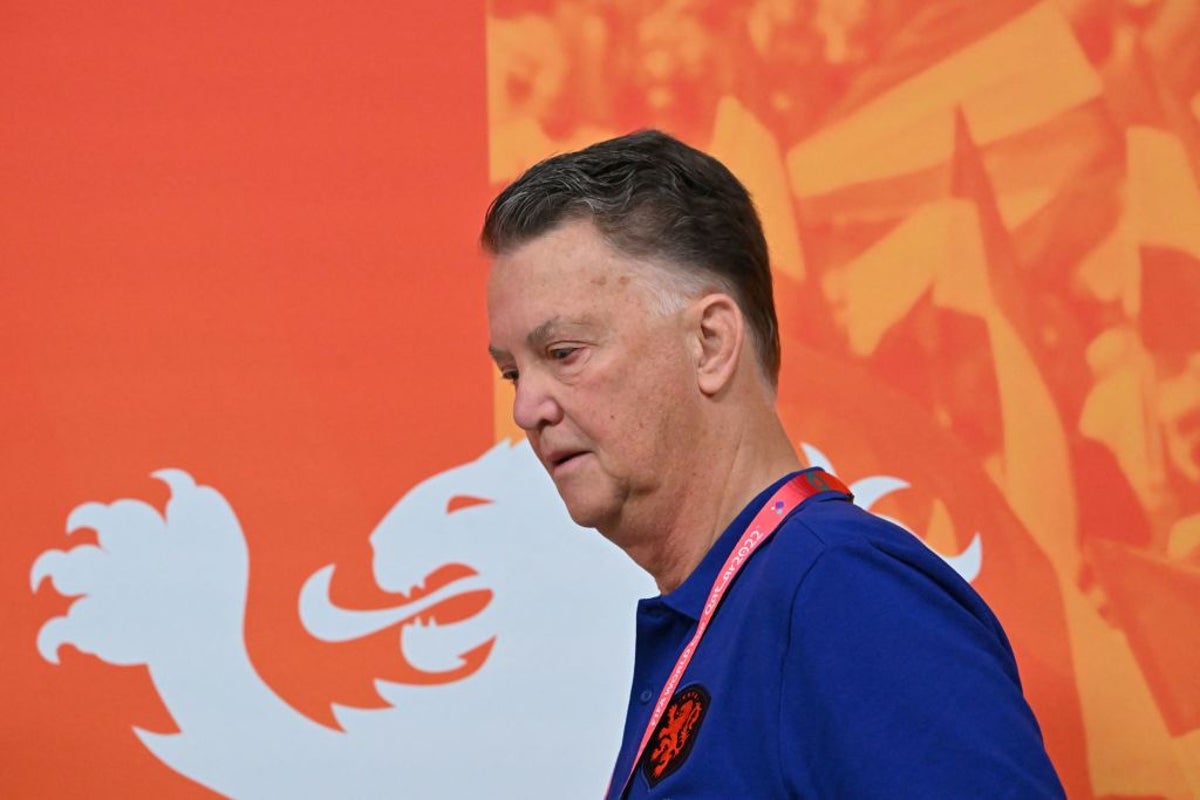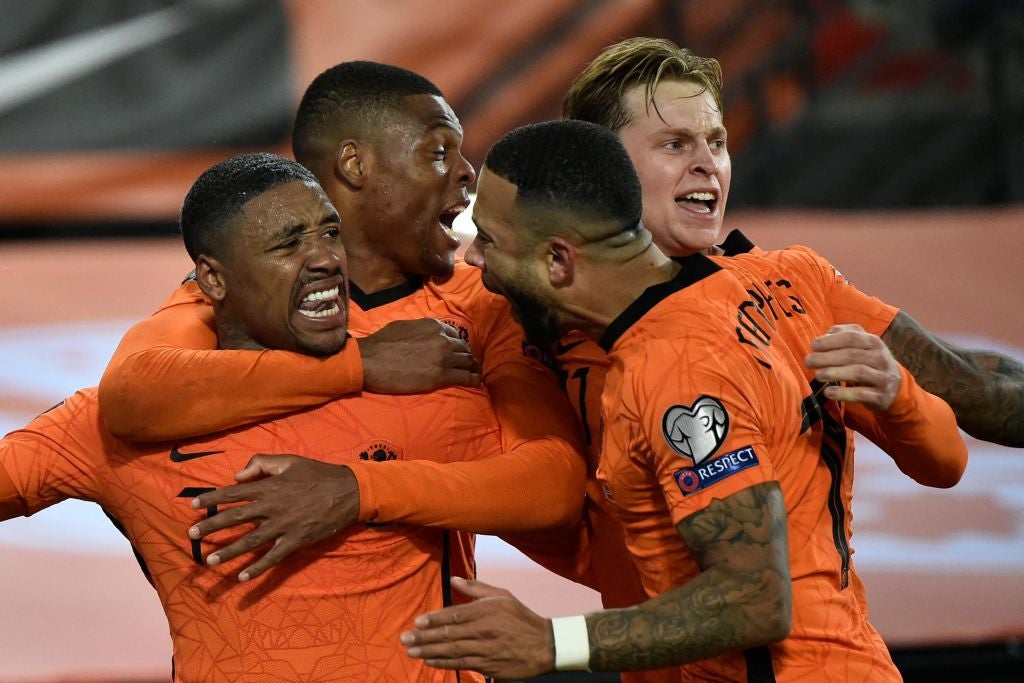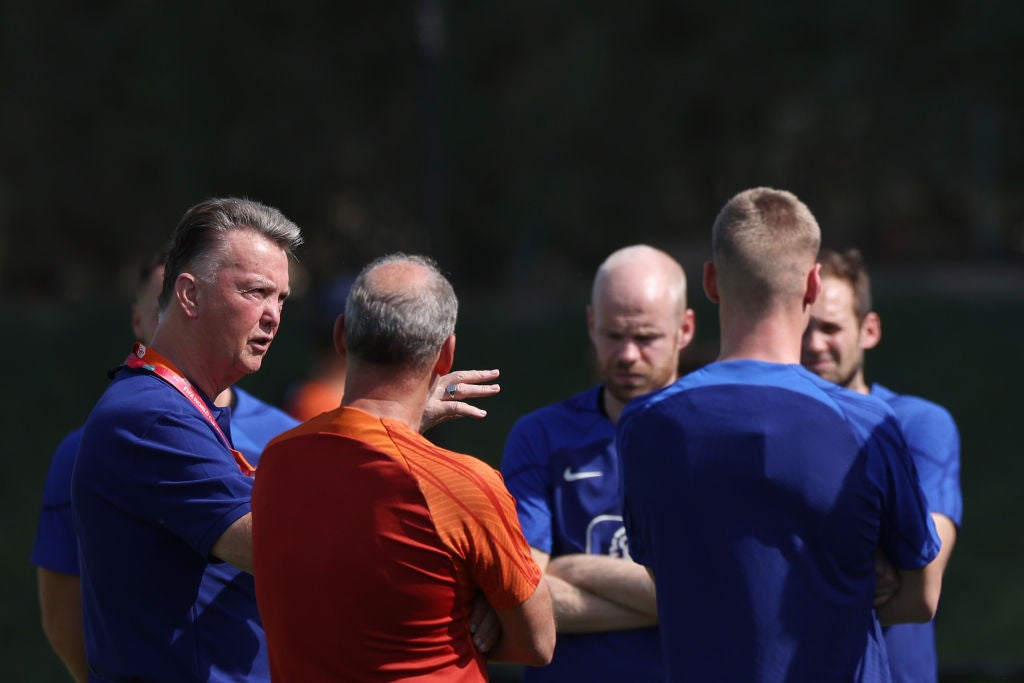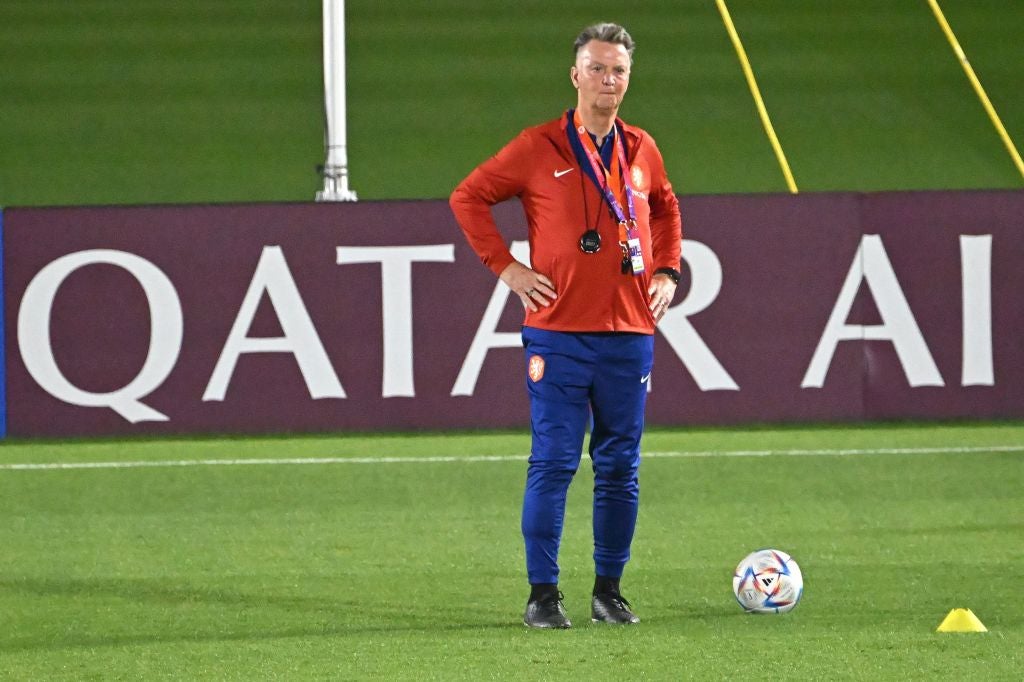
It was vintage Louis van Gaal, if also a twist of the current van Gaal. The Dutch coach once asked one of his analytical teams to come up with a very specific piece of research because he wanted insight into a particular area of play. The staff member dutifully went off and did it, but warned that it might not be possible to express in numbers in the way van Gaal wanted.
“This is low quality,” the coach said, when he finally saw it.
“But it’s exactly what you asked for!” the staff member protested. Van Gaal fixed him that look, before chuckling and patting him on the back. The Dutch coach is famously forthright, but he’s also unfailingly honest – not least with himself.
That has been seen more than ever over the last few months, right up to landing in Qatar. Van Gaal is not going to be as diplomatic as other managers about the nature of this World Cup. None of Gareth Southgate’s judicious equivocating for him. Van Gaal has already described it as “bulls**t”.
“It’s ridiculous that the World Cup is there,” he said a few months ago. “It’s about money, about commercial interests.”
Just this week, van Gaal made sure to tell people that he agreed with Dutch fans boycotting the tournament. “They are right.”
Such is the manner in which this World Cup has been normalised, with so many in football willingly turning blind eyes, and such is van Gaal’s willingness to sear through it, that a line has gone around about him: “One of the last honest men in football.”
He’s also someone who cares deeply about the football.
The idea of van Gaal traipsing around Fifa’s Potemkin village and telling everyone what’s what is quite a story in itself, and warrants a documentary crew of its own, but there is an even deeper level. That’s because of a rare lie from this honest man, albeit a necessary and understandable one.
Van Gaal did not tell his players during qualifying that he was suffering from aggressive prostate cancer.
It is immensely admirable bravery, amplified by how the 71-year-old came out of retirement to rescue his country’s underperforming team and try to have one last chance at glory.
Some might think the poignant circumstances have liberated van Gaal to speak even more freely, but that would be a lie in itself. He is just being himself, as Ajax’s Steven Berghuis found out when he sent the manager a message on finding out he was ill.
A WhatsApp message quickly came back.
“Thank you. I just hope you are ready to become world champion.”
Berghuis said he found the message touching.
It could also be read as van Gaal being abruptly demanding – and being true to himself. The force of the manager’s personality, allied to his football knowledge, has certainly brought more out of the Netherlands.

It has brought them together, bonding a precocious but incomplete and inexperienced young group to become much more than what they are. This Dutch team looks like it might easily be quarter-finalists, suggesting promise for the future – like France in 2014.
Not for van Gaal. This is all about now, about seizing an opportunity. He is here to win the World Cup and has impressed as much on the players. They’re on a formidable run and look like they can match anyone in a World Cup without a super favourite.
They also have this grand emotional cause, which has only strengthened van Gaal’s bond with his squad. Some might see that as a new development for the manager himself, but it isn’t really.
Although many past players have previously been left exasperated by the 71-year-old and his demands, former Dutch international Jimmy Floyd Hasselbaink insists that was always overstated.
“Oh, he’s top, mate,” Hasselbaink tells The Independent. “He’s top, in all areas. On the pitch, off the pitch, there’s always an idea with him. His tactical side, his training, which is always intense and always sharp.
“I was very good with him. He was very big on time-keeping. If we have a 12 noon meeting, you’re there two minutes before 12. If you have a dinner and everyone has to wear a suit, he expects you to wear that. That’s how far he goes in detail.”
There are stories of van Gaal sending players all the way back to their rooms because they’ve opted to wear flip-flops with their tracksuits rather than the expected trainers. For Hasselbaink, though, what is always crucial is that van Gaal explains his rationale. Wayne Rooney was another high-profile player who felt the same. Van Gaal might have given him abrupt instructions that Rooney didn’t necessarily enjoy, but the manager would explain why, which would coax him along.
“Some will say that is an army camp, but he says that if you can follow these kinds of instructions you will follow instructions on the pitch and stay with the team ethic,” Hasselbaink explains.

Some players couldn’t get with it. “Him and [Pierre] van Hooijdonk – not good,” Hasselbaink chuckles. “But I think he has changed a little bit. He’s mellowed out.”
He’s also evolved. There’s an instructive story that indicates as much.
Back in van Gaal’s first stint as Netherlands manager, in 2001, a brilliantly talented but ailing team were trailing 1-0 to Ireland in Dublin. They needed to score twice or they would be eliminated from the World Cup, so the manager went for it. Up to a point. Although van Gaal threw on forwards, he wouldn’t deviate from his ideological purity about 4-3-3. Hasselbaink was introduced as a winger.
“Yeah,” Hasselbaink laughs now. “And that was a big mistake. He kept with the 4-3-3. My best position was as a striker, but he put me on the right-hand side. I tried to do a job for the team.”
It didn’t work. The Netherlands were beaten, failed to qualify and consequently finished van Gaal’s period, with him cast as an Antonio Conte of his day.
Up to then he had been seen as one of the best managers in the world, mostly from how his young Ajax of 1995 had passed their way to Champions League glory with that very ideological purism. The game was changing, though, so van Gaal had to change.
He’s had a few renaissances now. There was the title with AZ Alkmaar in 2009, the run to the Champions League final with Bayern Munich in 2010 and of course his redemptive surge to the semi-finals with the Netherlands in the 2014 World Cup.
Much of that involved tactical moves far removed from his Ajax and Barcelona teams, but he has now almost gone to the other extreme. Van Gaal has specifically tailored a formation to a team. With most of Netherlands’ best talent in defence and midfield, he has opted for a wing-back formation that he surely wouldn’t have dreamt of in 1995 or 2001. It’s also brought an acceptance that Dutch football culture and media wouldn’t usually allow.

There would even be a place for a younger Hasselbaink up front.
“I think I would definitely have a place,” Hasselbaink smiles now. “He’s changed that, but, because it’s Louis van Gaal, the journalists have not been giving him a hard time.
“There’s no debate about 4-3-3. You have to understand that things weren’t going very well at all under Frank de Boer; it was actually very bad. Now van Gaal has taken over and changed things. They are more solid. They have beaten Germany. He’s acknowledged he has really good defenders, so I think because of what he has available he is making his formation from that.”
In other words, he’s staying true to his team, and to himself.
Van Gaal firmly believes the Netherlands can win their first-ever World Cup. He has made his players believe it. That honesty shines through.







